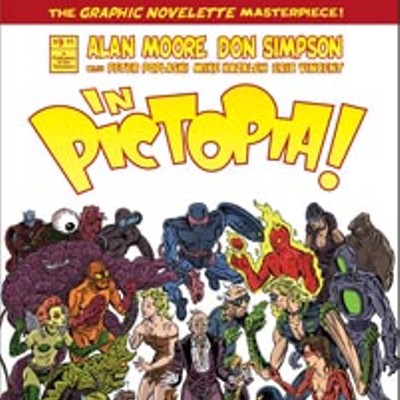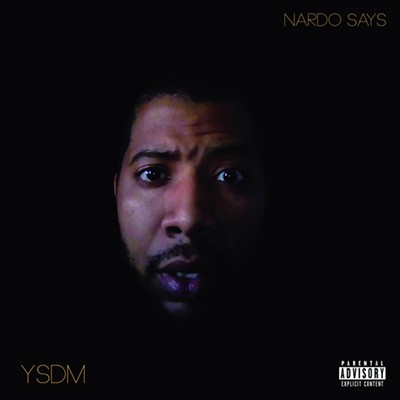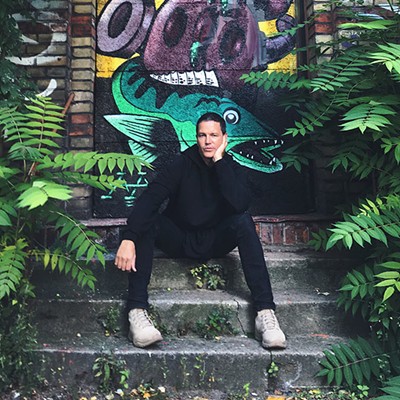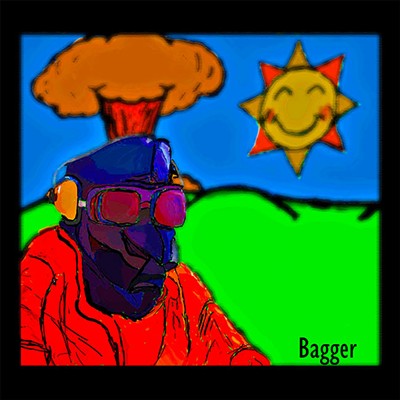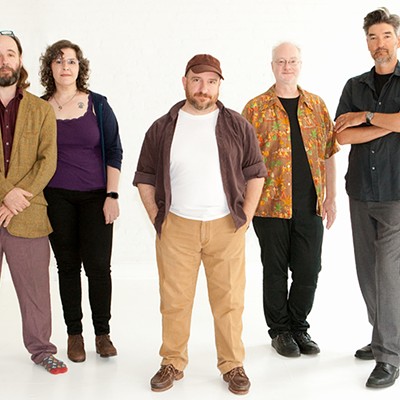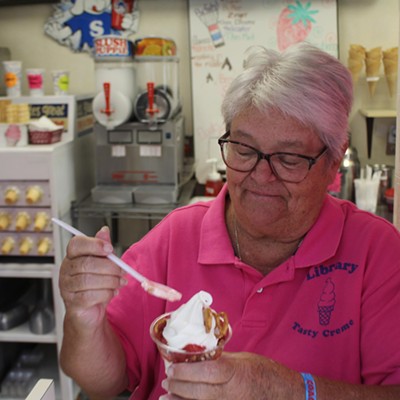Wednesday, September 22, 2010
Van Dyke Parks, extended interview, part one
Last week I had a chance to catch up with legendary arranger, producer and songwriter Van Dyke Parks, who plays at the Warhol next Tuesday, Sept. 28. Since space is at a premium in the newspaper, we could only run a short version of the interview -- but I tend to feel like you deserve to hear more when I think an interviewee has a lot to say, and Van Dyke definitely has plenty to say. I'm posting the less-abridged version of the interview here on FFW>> in two parts this week, and you'll get a little audio nugget as well before week's end. Here's part one!
Van Dyke Parks: What's up, doc?
City Paper: Well, we're hanging out here in Pittsburgh and you've got a show coming up here – and you spent some time living here in college, correct?
VDP: I went to Carnegie Tech for two and a half years. They called it Carnegie Tech then. I know Pittsburgh very well; my family, though I was born in Mississippi and my family spent most of their time in the South, my father spent almost a decade in the Pittsburgh area working at various hospitals as a doctor. Then I chose Carnegie Tech because I loved the school, and I loved the man who taught me, a professor by the name of Nelson Whitaker. What a great man, to realize that I was going back to the age of Beethoven and Czerny and the dynasty of teachers from whom he came. I was at a wonderful school.
CP: Would you say that your time at Carnegie had a profound effect on your career as a musician?
VDP: Well, yes, not in the ways it intended. They intended to make me legitimate but what they did was create an illegitimate man. By my own desire to get back into things like melody and the physicality that good ostinato rhythms can offer. I wanted to be a part of pop music, I wanted to be serious about un-serious music. That's been my distraction all my life. I've been in both worlds – the legitimate one, so-called legitimate, and also the illegitimate world. And it's interesting to me; I almost, in my work, try to combine those forces. As an arranger, if you look back, early, when I was arranging for people like Ry Cooder. He had a street sensibility, a blue-collar reality, that still, I think, benefitted from an orchestral arrangement. And we ghosted his works on mandolin and bottle-neck guitar with a large string section or something. I always try to keep the plain and the fancy in view.
And when I went to Carnegie Tech, basically all the music was atonal and polymetric, and all the music was beyond the reach of the audience. You'd come out of a room listening to some serious music at that time, and you had not one melody in your head. I know it doesn't sound like much right now, maybe it sounds like a very trivial thing, but serious music – which was basically serial music at that time – was abstract to the degree that it just alienated me from study. And when I got out to California in 1963 to play guitar in a coffeehouse, I was dreaming of things like the Beat poets and John Steinbeck and the California frontier welcomed me with that poetry and that illumination. THey called that generation "Beatniks," and the reason they called them "Beatniks," "-nik" is the operative syllable, was to brand them as Commies. It was to paint them pink. In fact they were people of inquiry and they were wonderful. They Beat generation was something that was dying when I first came out here. But to put it bluntly, the music at this time that we were playing, it was folk music, from all different languages and so forth, but it was music with a driving force. It was memorable, and you could come out of a room and you could remember it. At that time, I'd be playing a coffeehouse and I'd be following a steel band, or a gospel group, Bessie Griffin and the Gospel Pearls. Had to follow these incredible musicians. Black and white and brown people all gathering in a wonderful place where the arts collided. I was influenced by all that and it became my heart's desire to one day be able, after a long time in a recording studio, to have the opportunity to go on tour, to be able to afford the time to do that. And just play. And that's what I'm coming to Pittsburgh to do.
CP: You're revisiting some stuff from Song Cycle that you wrote a good 40 years ago, and you're revising, revisiting some of that music. I'm curious as to how you interact with those songs at this point, and whether you've worked with them constantly since then, or if you took a break and are just revisiting them now?
VDP: Of course, I've had to support my family and put three kids into college in the meantime. I've done other things in the song form, it's not like I'm sitting here – this is a matter of open self-examination. It would not be true to say that I'm coming out to promote some songs that have past their expiration date. What's true is that I haven't played these songs [in a long time]; I want to, I consider them durable goods, and something that relates to our common human condition now in the present tense. I think that this is a process of inquiry for me, but it's also because I think that I will provide validation for this material. I don't think you have to Charleston or disco your way through life. I don't think you have to be branded generically to find relevance as a songwriter or a singer. And it's not that I only want to sing songs that I've written; I want to sing songs that others have written, or that I've written with others. I run the gamut in doing it, from absolute shock and awe to immediate contentment, but it's a test case to me to revisit the past, to be able to do that openly, stripped and bleeding, for the casual observer to maybe get some simple pleasure or realization from it.
Thomas Jefferson said that he was loath to unveil his true affections to the vulgar public gaze; and someone asked him why, and he said "If you show men your depth, they will ford your shallows." That is to point out – what Jefferson said I thought was wonderful – that's to point out that I think that it's a high risk area to reveal yourself in the song form, because you do show people your depth. You show people whether you care about it or not, whether you give a damn. Give a damn about the poor. Give a damn about ecological outrage. Give a damn about racism. Give a damn about war. People will know whether you give a damn when you write a song. I give a damn about those things. I want that urgency, that exhortation, to leap out of this creed for greed and its smug materialism. I think that whatever I can do in my work to jar people into another place. To agitate with my songs. To have them have a sense of purpose that is beyond myself. It's too late for me. I'm not a brunette. But it's not too late for what I observe.
And I want to be a friendly persuader. I want to be part of that friendly persuasion that insists that we do better toward each other. And quite frankly, I don't feel like a messiah, but I think I'm part of that necessary process of confirmation and encouragement in a cynical age.
There's so much to do, and the song form, to me, is epic, and there's nothing I like better than the song; it's the most portable piece of cultural goods. You don't have to tote a thing. I have such great respect for the song form. Now this is what I want to do with my life – this is my first excursion. I can't tell you right now the exact year I saw my last lightning bug. Or crocus breaking through the ground. I want to discover America. I wanna take a look. I want to be there and do that and get east of the Mississippi and this is all a great adventure for me. Isn't that funny?



